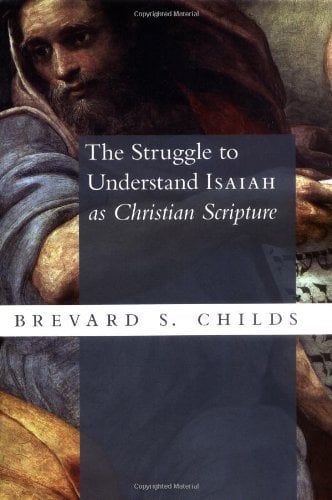Nicholas of Lyra (ca. 1270-1349 A.D.) has sometimes been accused of being as pale imitator of Thomas Aquinas, which is not exactly fair. He does argue with Thomas that “words always signify things, but in scripture the things signified by the words [e.g. Is. 7.14] signify other things” as well.” The literal or historical sense of the text is obtained by understanding the first signification, the spiritual sense is acquired by understand the second ‘level’ of signification—things signifying things other than themselves, because they are seen as signs pointing to other things. In one of his prologues he insists that the literal sense of the text is the foundation of all interpretation and he goes on to suggest that the text itself has a double literal sense, so for example in 1 Chron. 17.13 it speaks literally of Solomon as God’s son in the first place, but of Christ as God’s Son in the second place. These are both literally referred to.
Despite the reference to a double literal sense, when one turns to Nicholas’ Isaiah commentary itself, again and again he simply says that the literal meaning of the text is found in its reference to the Christ event. So for instance in dealing with Is. 8 while Aquinas said it referred in the first instance to a son of Isaiah himself, and in the second instance to Christ, Nicholas rejects this ‘duplicity’ argument, and says that the prophetess in question is Mary, and he refers to Luke 1. So what was formerly called the figurative sense of the text is now called the one and only literal sense of Is. 8 by Nicholas. The result of the way he handles the messianic passages in Isaiah is that one actually loses its original historical reference and significance.













